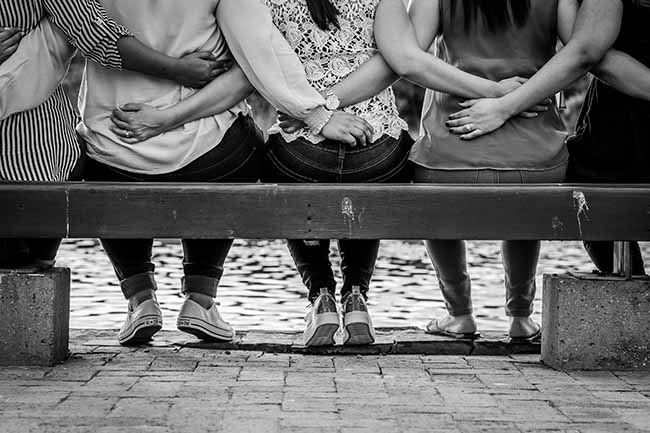On this International Women’s Day, as we celebrate accomplishments of the past, and trailblazers who made them possible, we also take stock of persisting challenges women continue to face in Canada, and around the world, which are numerous, so this is by no means an exhaustive list.
Femicide may not be a word you’ve heard often, nor one you’ve heard associated with Canada, but for decades, Canada’s inaction on violence against Indigenous women and girls has led to an epidemic of violence, in large part due to systemic racism, sexism and cultural racism. Missing and Murdered Indigenous Women and Girls (MMIWG) are the result of decades of inaction from both federal and provincial governments to allow for due process and assign resources to finding missing Indigenous women and girls, since the assumption has usually been that the women were involved in sex work, which further diminished the urgency of finding the women and girls.
Additionally, women in Canada continue to face gender-based violence, sexual assault and harassment in their intimate relationships and workplaces. Despite efforts to address the gender pay gap, more women and children live in poverty, with racialized women and children experiencing much higher rates of poverty in all its facets.
Another problem that you may not think is a Canadian one, is child marriage. Despite Canadian laws against child and forced marriage, 3600 marriage certificates were issued to minors under the age of 16 from 2014-2018, and of course, there are informal marriages which are more common. Child marriage is a global indicator of gender inequality, due to negative consequences for health and personal development.
In the United States, the recent ban on abortions has made abortion a criminal act in some states. This means that women and healthcare practitioners who assist women in accessing abortion could be jailed. Overturning this legislation is monumental, as it allows the government to overreach its powers to regulate women’s choices, and ultimately, bodies, thereby limiting their autonomy and agency as adults to make decisions about their lives. But, it’s also a problem because these laws heavily impact disenfranchised communities, who have lived under systemic discrimination. Consider that Black, Hispanic, American Indian and Alaska Native (AIAN), and Native Hawaiian and Other Pacific Islander (NHOPI) women have more limited access to health care, which affects women’s access to contraception and other sexual health services that are important for pregnancy planning. Ultimately, a ban on abortions means that those who need it, will access it under unsafe conditions that can cause death, or serious long-term health impacts. Conversely, it means children are born to mothers who may be financially, or otherwise unequipped to care for them.
Moving across to another continent, in Iran, morality police have enforced hijab laws. You will recall massive protests against Mahsa Amini’s tragic death at the hands of the morality police. In Afghanistan, the Taliban are once again denying women and girls education, work and the most basic of freedoms. Since the US and its allies left the country, the country fell back into chaos and repressive conservatism.
The Chinese government’s population policies treat women as “wombs” subject to forced abortions or forced pregnancies depending on the “needs” of the country; Qatar criminalizes extramarital sex where pregnancy acts as evidence against women; Russia and Turkey are deliberately walking back protections against domestic violence, with Turkey in particular, withdrawing from the Council of Europe Convention on preventing and combating violence against women and domestic violence (the Istanbul Convention). The pandemic has underscored the pervasiveness of domestic violence, and that in many countries around the world, there are few resources women can access, and even fewer laws to protect them.
There is a clear movement and dynamic in the attack on women’s rights, and at the risk of oversimplifying the matter, the rise of conservative governments is a major factor. All Conservative governments, with their cry for traditional values, harking back to the “good” old times, have rolled back women’s rights. It’s been said, that the fight for women’s rights is a fight against authoritarianism. Without question, women’s rights are under serious attack, but those attacks are not separate and apart from the rise of conservative governments whose initial attacks have begun with disenfranchised social groups.
If we don’t act in solidarity, and don’t defend women’s rights vehemently, we send a signal to our governments that some rights matter less, that some are negotiable. If we don’t act now, we will have to grapple with this question: whose rights are not in line with traditional Conservative values?
Ivana Saula
Canadian Research Director and
Director, Women and Human Rights
